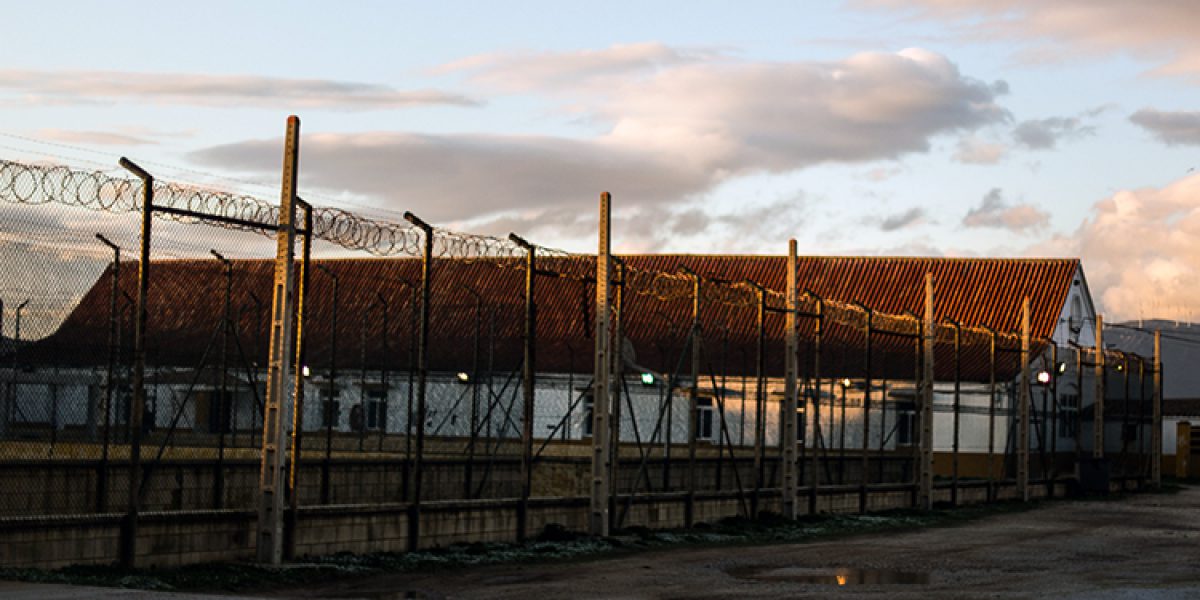Do not resume immigration detention after COVID-19
13 May 2020

• With a petition, SJM calls on the Spanish Government not to resume the use of detention centres in immigration procedures once the pandemic is over.
• There are concerns about the lack of capacity of immigration Detention Centres to prevent contagion as well as about the immigration detention policy as such.
The Jesuit Migrant Service calls the Government of Spain and the Judiciary not to resort to the detention of foreigners at the end of the pandemic. The Detention Centres (CIEs) are empty today and should remain so.
As the process to ease the lockdown begins in Spain, there is growing concern among NGOs visiting Detention Centres that the Government will resume expulsion and return of migrants, using Detention Centres as soon as international borders will reopen.
The Minister of the Interior has already stated that detention will depend on the reopening of international borders and the effective possibility of executing expulsion orders. In any case, detention should be the last resort in any expulsion procedure: it is a precautionary measure with very narrow margins of constitutionality and the legal system provides for alternative measures. Moreover, the current system is intrinsically unfair. For instance, in return proceedings at the border, where the law would require detention if return cannot be executed within 72 hours, this measure is applied randomly: not everybody caught crossing the border is sent to a Detention Centre. In addition, when resorting to detention, authorities do not always take into consideration situations of vulnerability, such as minors, persons wishing to apply for international protection, with signs of physical or mental health problems, whose return is anticipated to be impossible (unclear nationality, origin countries unwilling to accept migrants back), having roots at the local community or who have been trafficked.
It is not enough to establish limitations on the occupation of the CIE to prevent contagion. Because of the structural conditions of the CIEs and the shortcomings of their services, a considerable budgetary investment would be needed to bring the CIEs up to standard. This would be very irresponsible in a time of crisis, especially as there are alternatives that are both safer and cheaper.
Spain has positively stood out in Europe during the COVID-19 crisis for the progressive release of detainees from immigration detention. This was done based on two reasons: the impossibility of expulsing or returning people to their home countries due to the closing of borders, and the risk to the health and life of the detainees and service personnel in the CIE. The detainees who had their own homes or support networks were released first. Afterwards, the Ministries of the Interior and of Labour, Social Security and Migration coordinated to relocate detainees who had no other place to go to humanitarian accommodation centres. The intervention of the Ombudsman, of the supervisory courts in the respective CIE, and of civil society has been noteworthy in this process.
Stopping to resort to immigration detention would be fairer altogether. That is why SJM calls on the Commissioner-General for Aliens and Borders to instruct the National Police to stop from seeking judicial authorisations for detention. Furthermore, we call on the Aliens Public Prosecutor to instruct aliens prosecutors to advise against any request for judicial authorization for detention.
In case the use of detention is resumed, SJM insists that at least the following categories of people in vulnerable situations should not never be detained:
• Young people who are not certainly adults. When the result of the age test is 18, given the uncertainty of such tests, people should be considered as minors and protected accordingly.
• Persons wishing to apply for international protection, who should be given the opportunity to do so as early as possible in the identification process following their entry into Spanish territory.
• Persons with signs of physical or mental health problems.
• People with family and social relations, own home or support networks.
• People with signs of having been trafficked.
The economic crisis caused by the COVID-19 pandemic may have important effects on migratory movements. As the last crisis dragged on, Spain was more of an emigration and transit country than an immigration country. It can happen again. Prolonged unemployment among foreigners with temporary residence permits may increase the number of cases of irregularity. It is time to design and apply policies that cushion the impact of the crisis and prevent further irregularity, as expressed by SJM in a Decalogue of administrative proposals. It is not time to think of repressive immigration policies and detention as a show of force that only reassures public opinion in the country… because it does not have any deterrent effect on immigration situations. New times need new policies.
